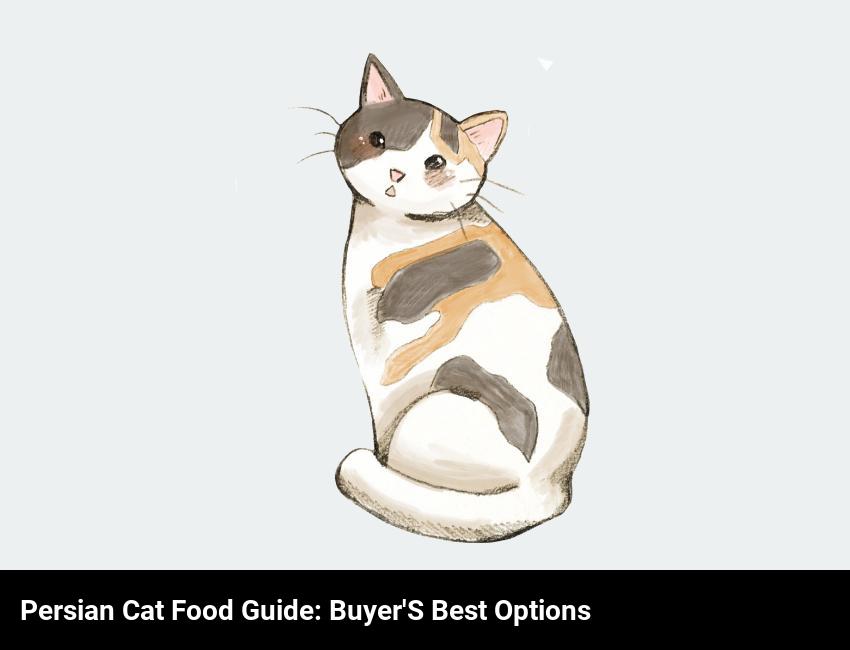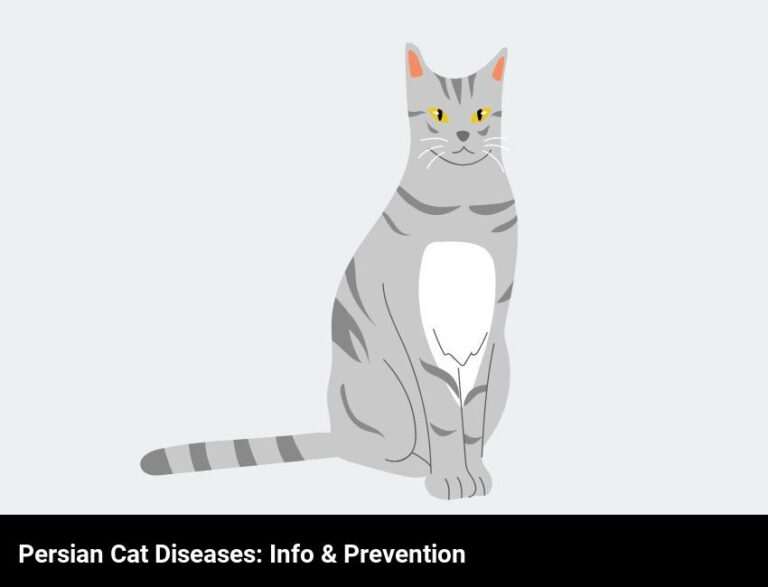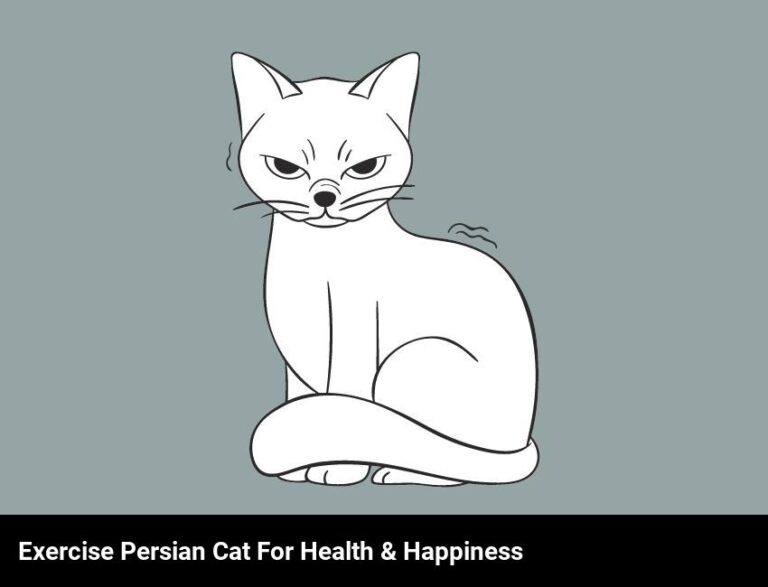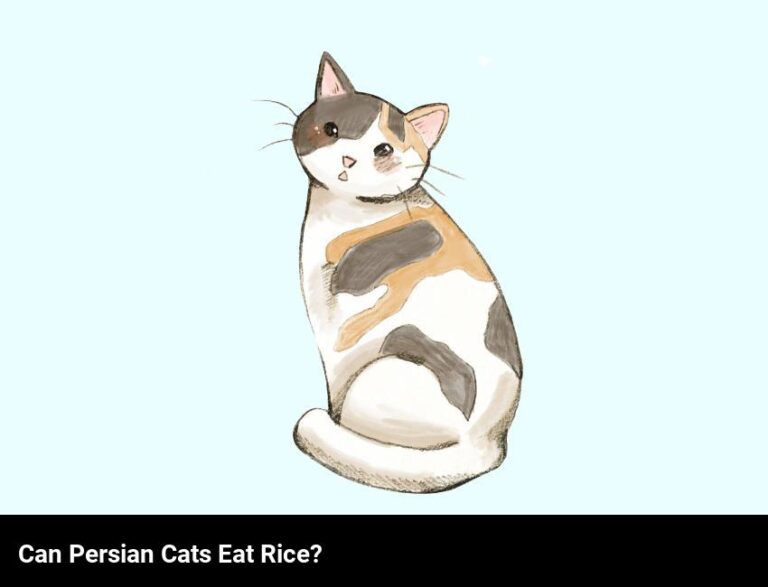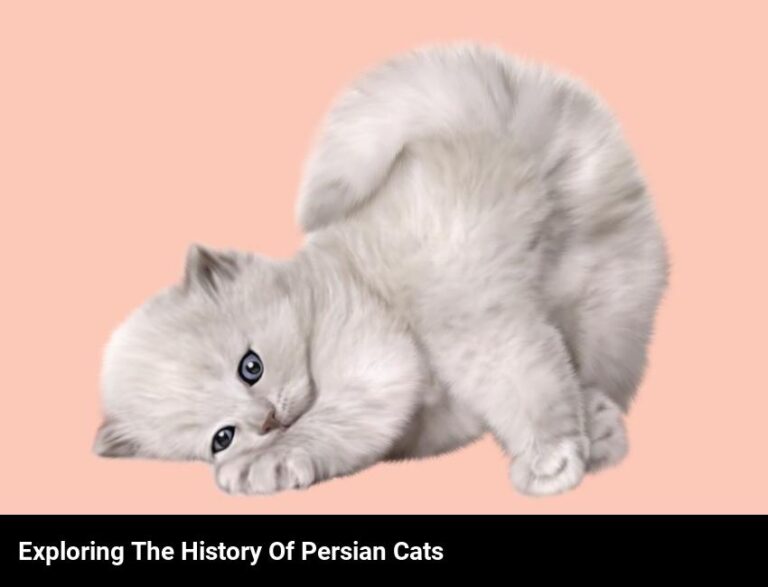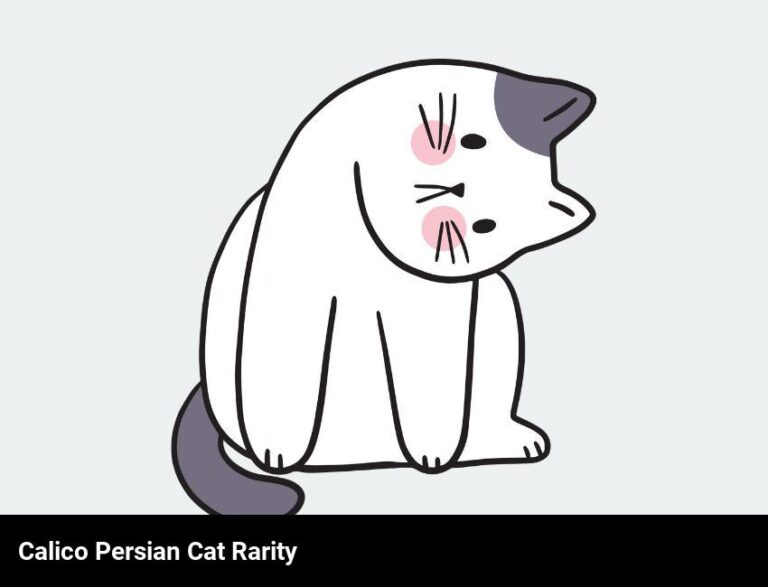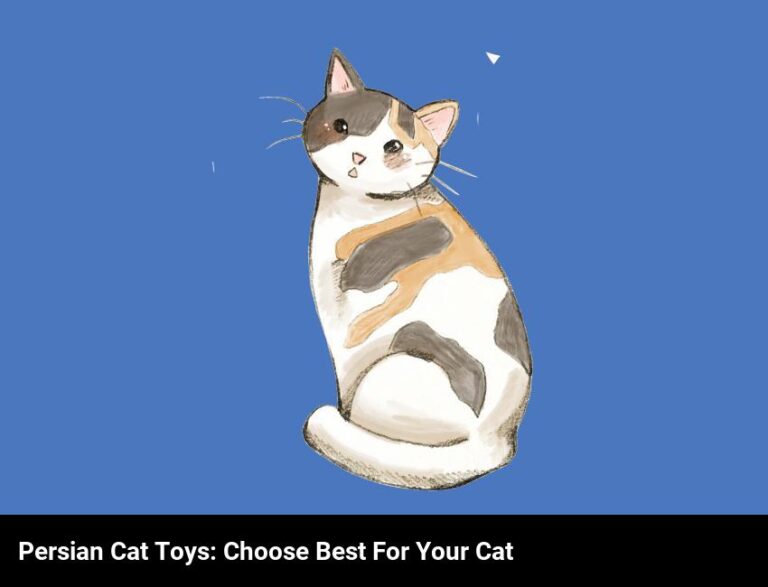Best Persian Cat Food: A Buyer’S Guide
The best Persian cat food should be high in protein, low in carbohydrates, and free of artificial additives. Look for a brand that uses wholesome, natural ingredients and provides the essential vitamins and minerals your pet needs. Consider your cat’s age, activity level, and health condition to choose the ideal food for their specific needs.
As a proud owner of a Persian cat, I know how important it is to find the right food for my furry friend. A healthy diet is essential for a Persian cat to remain happy and healthy. But with so many options on the market, it can be difficult to know which food will give your cat the best nutrition. That’s why I have created this buyer’s guide to the best Persian cat food.
This guide will cover all the essential information you need to know when selecting cat food for your Persian, from the benefits of high-quality food to understanding cat food ingredients, and the potential health risks of feeding Persian cats poor quality food. I’ll also explain the different types of cat food suitable for Persians, the different types of cat feeding methods, and the do’s and don’ts of feeding Persian cats.
By the end of this guide, you’ll have all the knowledge you need to choose a healthy and delicious cat food for your Persian cat.
What are the different types of cat food suitable for persian cats?
If you’re looking for the best food for your Persian cat, you’ll want to choose something that’s specially formulated for their needs. Persian cats have unique dietary requirements, so it’s important to find the right kind of food to meet their needs. Here are some of the types of cat food that are suitable for Persian cats:
Kibble: Kibble is one of the most popular and convenient types of cat food. It’s easy to store and serve, and it’s also loaded with nutrients that your Persian cat needs. Look for a kibble that’s specifically formulated for Persian cats—it should contain plenty of protein, healthy fats, and essential vitamins and minerals.
Canned: Canned cat food is a great alternative to kibble, and it’s also very nutritious. It’s usually higher in moisture content, which can be beneficial for cats that don’t drink enough water. Canned food is also easier for your Persian cat to digest, making it a great choice for cats with sensitive stomachs.
Raw: Raw cat food is becoming increasingly popular with pet owners, and there are now a variety of options available. Raw cat food is usually fresh, natural, and packed with vital nutrients. It’s a great choice for Persian cats, as it’s more easily digestible and provides vital vitamins and minerals.
Homemade: If you’re an experienced pet owner, you may want to consider making homemade cat food for your Persian cat. This is a great option if you want to know exactly what your cat is eating and can be tailored to meet their individual needs. However, it’s important to speak to your vet first to make sure you’re providing a balanced, nutritious diet.
No matter which type of cat food you choose, make sure you find a high-quality option that’s specifically formulated for Persian cats. Quality is essential for your cat’s health and well-being, so take the time to find the best food for your feline friend.
What nutritional requirements should be considered when choosing cat food for persians?
When it comes to choosing the best cat food for your Persian, you want to make sure their nutritional needs are met. Persians are a particular breed and have specific dietary requirements. Here are some tips for what to look for when selecting the right cat food for your Persian:
Protein: Protein is the building block of a cat’s diet and Persians require a high-quality source of protein. Look for a food that contains animal proteins such as chicken, turkey, duck, or salmon.
Fats: Just like humans, cats need fat in their diet for energy, insulation, and skin and coat maintenance. Look for a food that contains balanced levels of Omega-3 and Omega-6 fatty acids to ensure your cat’s dietary needs are met.
Carbohydrates: While cats don’t require carbohydrates, they can provide energy and fiber. Look for a food that contains carbohydrates such as brown rice, oatmeal, and barley.
Vitamins and Minerals: Vitamins and minerals are essential for cats to maintain a healthy lifestyle. Choose a food that contains a variety of vitamins and minerals such as Vitamin A, B, C, and E as well as essential minerals like zinc and iron.
By keeping these tips in mind when selecting cat food for your Persian, you can be sure their nutritional needs are met. With the right cat food, you can be sure your Persian will be healthy, happy, and purring for years to come.
What are the best brands of cat food for persian cats?
When it comes to finding the best food for your Persian cat, you want to make sure you’re giving them a diet that will keep them healthy and happy. Luckily, there are a variety of brands that make high-quality food specifically designed for Persian cats.
The first option to consider is Royal Canin, a brand known for its quality ingredients and specialized diets for cats of all breeds. Their Persian-specific formula is designed to provide the vitamins and minerals that these cats need to stay healthy and happy.
Purina Pro Plan is another great choice for Persian cats. Their cat food is packed with essential nutrients, including omega-3 fatty acids and taurine, that helps to promote healthy skin and coat. Plus, it’s full of antioxidants to help support your cat’s immune system.
If you’re looking for a more natural option, Natural Balance is a great choice. Their cat food is made from natural ingredients and contains no artificial colors, flavors, or preservatives. Plus, it’s highly digestible, so your cat is able to get the most out of their meals.
Finally, Hill’s Science Diet is a great choice for Persian cats. This food is specially formulated to provide your cat with a complete and balanced diet. It also contains high-quality proteins and ingredients to help your cat maintain a healthy weight.
No matter which brand you choose, make sure to look for a formula that is specifically designed for Persian cats. By giving your cat the right kind of food, you can help them stay healthy and happy for years to come.
What are the benefits of feeding your persian cat a high quality food?
Feeding your Persian cat a high quality food offers a range of benefits for your pet. Here are just a few of the advantages that you can look forward to when feeding your cat the best food for their breed:
- A glossy coat: High quality food, rich in proteins and fatty acids, helps to keep your Persian cat’s coat looking shiny and healthy, while avoiding dryness, matting, and breakage.
- Balanced nutrition: A good Persian cat food will provide your pet with all the essential nutrition they need to stay healthy, including vitamins and minerals.
- Reduced shedding: Quality food helps to reduce shedding and keeps your Persian cat’s coat healthy and free of debris.
- Healthy digestion: A high quality food will reduce the risk of digestive issues, including hairballs and vomiting, in your Persian cat.
- Healthy weight: Quality food helps to promote a healthy weight and avoid any problems with obesity.
- Increased energy: Quality food helps to keep your Persian cat energized, active and ready to play.
- Overall wellbeing: High quality food helps to ensure your Persian cat is receiving the best possible nutrition and is in peak physical condition.
How to read labels and understand cat food ingredients?
If you’re looking for the best Persian cat food, the first step is to learn how to read labels and understand cat food ingredients. Here’s how to do it:
- Check for grain-free formulas: Look for formulas labeled “grain-free”, as grains are not a natural part of a Persian cat’s diet.
- Look for high-quality proteins: High-quality proteins should be the first listed ingredients, like chicken, turkey, lamb, or fish. Avoid any foods with by-products or low-quality proteins.
- Look for healthy fats: Healthy fats from animal sources should be included, like chicken or duck fat. Avoid vegetable oils as primary sources of fat.
- Avoid artificial additives: Artificial flavors, colors, and preservatives are not healthy for your pet and should be avoided.
- Read the label: Take some time to read the full list of ingredients and ensure the food is appropriate for your pet.
By taking the time to read labels and understand cat food ingredients, you can make sure you’re feeding your Persian cat the best food for their diet.
What are the potential health risks of feeding persian cats poor quality food?
When you’re searching for the best Persian cat food, you may have heard that the quality of your cat’s food can have a big impact on their overall health. But what kind of risks can come with feeding a Persian cat poor quality food?
First and foremost, an inadequate diet can lead to weight problems in Persian cats. If your cat isn’t getting the proper nutrition, they can become overweight, which puts them at risk for serious health issues like diabetes, heart disease, and even joint pain.
Poor quality food can also mean that your cat isn’t getting enough vitamins and minerals, which can lead to deficiencies that can cause serious health issues. Persian cats can be prone to developing urinary tract infections, which can be worsened by a lack of essential vitamins and minerals.
Finally, poor quality food can lead to digestive issues like vomiting, diarrhea, and constipation. These symptoms may seem minor, but can quickly become serious if your cat isn’t getting the nutrition they need.
When it comes to Persian cats, quality food is key. Make sure to opt for high-quality cat food that is specifically designed to meet their nutritional needs. That way, you can help ensure your cat stays healthy and happy for years to come.
What are the different types of cat feeding methods for persian cats?
If you’re looking for the best food for your Persian cat, you should know there are a few different types of feeding methods to choose from. The most popular is dry food, but you can also feed your cat wet food, homemade food, or raw food. Here’s a quick breakdown of the different types of cat food for Persian cats, so you can decide which one is best for your furry friend!
Dry food is the most common type of cat food and is usually most affordable. It’s made up of kibbles that are shaped like tiny bites and come in a variety of flavors and textures. These kibbles are usually packed with protein and other important nutrients, making them a great choice for your Persian.
Wet food is another popular option, especially for cats that don’t like dry food. It’s also a great choice for cats with delicate stomachs, as it’s easier to digest. The texture of wet food is often softer and more appealing, and there are plenty of flavors to choose from.
Homemade food is a great way to provide your Persian with a healthy and balanced diet. You can make it yourself from fresh ingredients or buy pre-made food from the store. Be sure to include a mix of proteins, carbs, and essential vitamins and minerals to ensure your cat is getting the nutrition it needs.
Finally, raw food is a great option for cats that need a high-protein diet. It consists of raw meat, organs, and other fresh ingredients that are full of vitamins and minerals. Many cats enjoy this type of food, but it’s important to make sure it’s prepared properly and in a hygienic environment to prevent any illnesses.
No matter which type of feeding method you choose for your Persian, make sure you provide them with a balanced diet and plenty of water. This will help keep them healthy and happy, and you’ll be able to enjoy your furry friend for many years to come.
What are the do’s and don’ts of feeding persian cats?
Do:
- Feed your Persian cat a high-quality diet. Look for cat food that is formulated specifically for the Persian breed, usually marked as “Persian Cat Food.” This type of food is specially designed to meet their unique nutritional needs.
- Feed your Persian cat multiple small meals throughout the day instead of a single large meal. This will help them regulate their blood sugar levels and maintain their energy throughout the day.
- Make sure your cat food contains plenty of protein, with some healthy fats and carbohydrates for energy. Protein is essential for Persian cats as it helps maintain their long hair.
Don’t:
- Don’t give your Persian cat table scraps or human food. Persian cats are sensitive to certain human food and it can cause digestive issues.
- Don’t give your cat foods that contain a lot of sugar or artificial flavors or colors. These can lead to health issues, such as obesity, diabetes, and other problems.
- Don’t forget about the importance of hydration. Make sure your Persian cat always has access to fresh, clean water throughout the day.
When it comes to feeding your Persian cat, a high-quality diet, multiple small meals, and plenty of water are key. Avoid giving them table scraps or food containing sugar, artificial flavors, or colors. With these do’s and don’ts in mind, you can provide your Persian cat with the nourishment they need to stay healthy and happy.
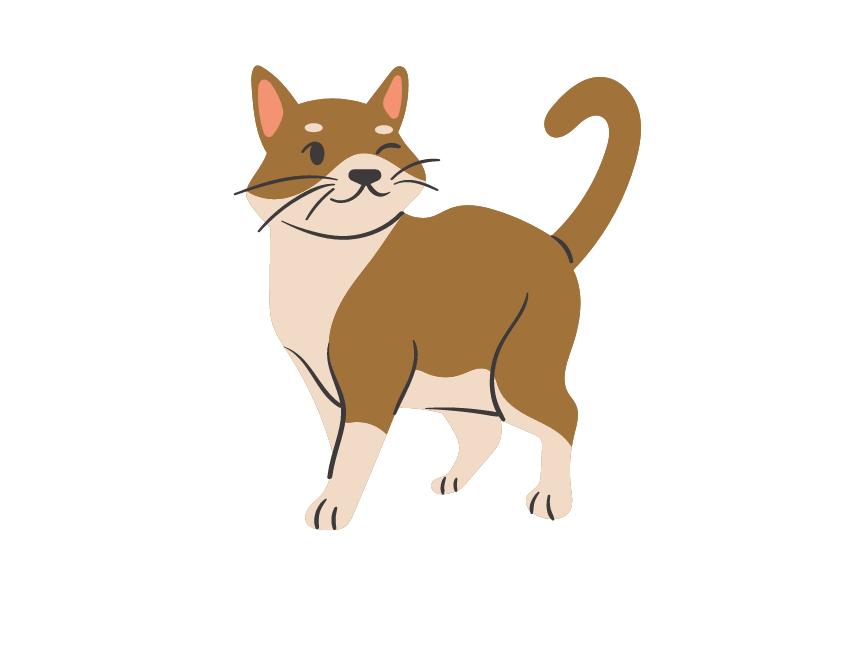
Frequently Asked Questions
What are the key differences between regular cat food and persian cat food?
The key differences between regular cat food and Persian cat food are the ingredients, the size of the kibble, and the calorie count. Regular cat food tends to have more grains and fewer proteins, while Persian cat food often has more proteins and fewer grains. Additionally, Persian cat food typically contains smaller kibble sizes designed to fit the shape of their smaller mouths. Lastly, the calorie count in Persian cat food is lower than in regular cat food, to help them maintain their weight.
What are the potential health benefits of feeding persian cats the best cat food?
Feeding your Persian cat the best cat food can provide numerous health benefits. It can help keep them at a healthy weight and provide them with the necessary vitamins and minerals for a balanced diet. It can also help boost their immune system, keeping them protected from diseases and maintaining their overall health. Additionally, it can help improve their coat and skin condition, helping them remain healthy and looking their best.
Are there any special feeding techniques for persian cats that i should be aware of?
Yes, there are some special feeding techniques for Persian cats that should be followed. Make sure to feed your cat a high-quality diet that is specifically formulated for Persian cats. Also, feed your cat multiple small meals throughout the day rather than one large meal. Additionally, try to avoid treats that are high in sugar and fat, as these can contribute to health problems in cats.

